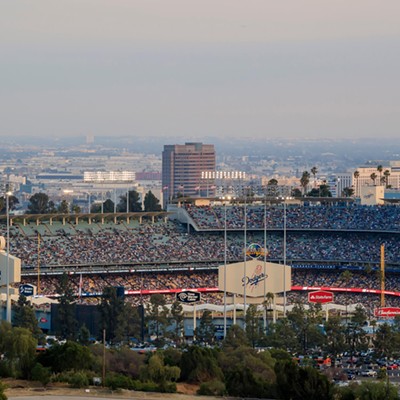This weekend, just a couple of days after having joined their fellow Americans in celebrating Thanksgiving, Catholics from all over the United States are going to look to the heavens, arms outstretched, and say in unison, "What in the hell's going on here?!"
For nearly 2,000 years, the Catholic Mass was celebrated in Latin. The same Mass, the same Latin text, all over the Earth. I was quite young when they did away with the Latin Mass, but I remember thinking that they were stupidly undoing one of the things that tied all Catholics together. During the reformist Second Vatican Council upheaval of the early 1960s, it was decided that the Mass would be celebrated in the mother tongue of whatever country one happened to be in (or, in the case of the church I used to attend, in Spanish, for no good reason whatsoever). Oddly enough, it seemed like an intentional re-creation of the Tower of Babel story from the Old Testament.
So, translations were made, and the English Mass came into being. I still think that change was dumb. Learning the Latin Mass is something all Catholics should do, just like wearing a short-sleeved white shirt and tie, and riding a bicycle, is a rite of passage for Mormon guys. Religion shouldn't be easy; it should be work.
Anyway, for the past 50 years, the Mass has been celebrated in English in the United States. Now, we're being told that the translation from Latin to English was imprecise (as though any translation from one language to another can be perfect), and they are now going to fix things. As a devout Catholic who truly believes and hopes to go to heaven when my time on this Earth is done, I must say from the bottom of my heart that this sucks.
Translations can be tricky, even if one has a guide, as with the Rosetta Stone. Translating holy Scripture, which some people (myself not included) believe is the actual word of God, is a fool's mission. For example, Jesus spoke in Aramaic, but the original New Testament was almost certainly written in Greek. That's a huge translation nightmare already. Plus, I read somewhere that the old Aramaic words for "on" and "near" are quite similar. Accordingly, it has been argued for centuries that in the biblical tale of Jesus walking on the water, he may very well have been walking near the water. (However, if Jesus were simply walking along the shoreline, it would not all of a sudden make him, in my eyes, Jesus Lite. He didn't need to do all kinds of magic tricks in order to show us the way.)
Because English is a mishmash of all kinds of base languages, the translation from Latin didn't go as smoothly as it did into Romance languages like Italian and Spanish. Nevertheless, the English Mass was adopted, and it has served American Catholics well over the past half-century. But now, some committee has determined that the translation wasn't literal enough, and changes must be made. So, after decades of learning the Mass to the point where it can be done by rote (and, believe me, there are Sundays when one's entire Mass experience is by rote), there comes this. Did I mention that it sucks?
The current English Mass is pretty straightforward and even poetic in spots. When addressing the mystery of the Trinity, it is said that Jesus is "one in being with the father." That phrase is being changed to "consubstantial."
Consubstantial?! Really? You keep that up, and Latin won't be the only dead language. They also replace the perfect word "offering" with "oblation." I always thought that "oblate" referred to the shape of a rugby ball.
I've spoken to several priests around town, and while they all say they will go along with the changes, not one is enthusiastic about them. Most question whether the changes are needed at all. A majority of the words and phrases that have been changed will be spoken by the priests. In mathematical terms, the amount of disapproval y, by priests, is represented by y = 4.8n(10I), where n is the priest's age, and I is the percent of that particular priest that is Irish.
I did happen to find a youth minister at a local Catholic Church who thinks that this is all much ado about nothing. Or, as the translation committee would say, "Copious travail concerning nihility."
He says that it's no big deal and that people should probably stop whining and give the changes a chance. He also asked not to be identified, probably (correctly) figuring that he'd be beaten about the head and neck with the umbrellas and canes of older people who have been doing the Mass a certain way for the past half-century, but are now being told, in their twilight years, that they have to do things differently.
There is an old saying that a camel is a horse that was built by a committee. After this, an Episcopalian will be a Catholic who was transmogrified by a committee.







